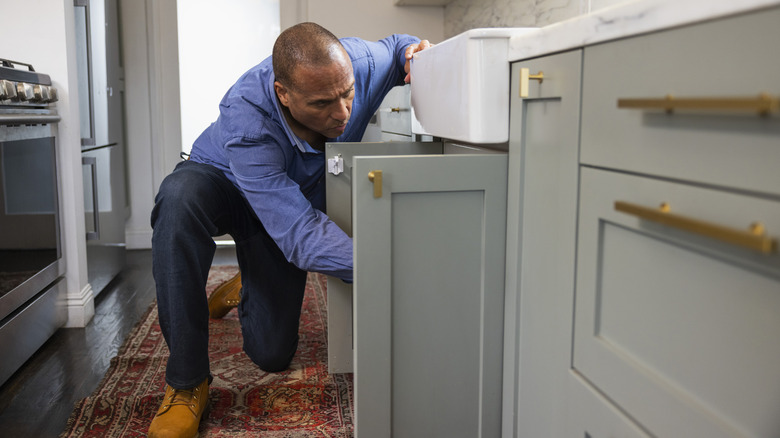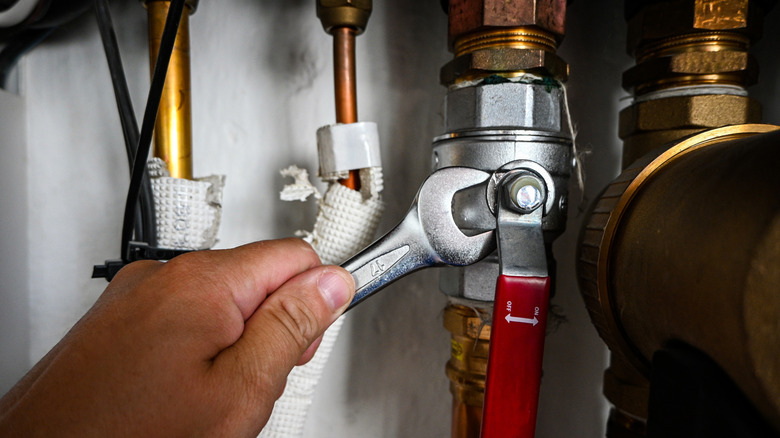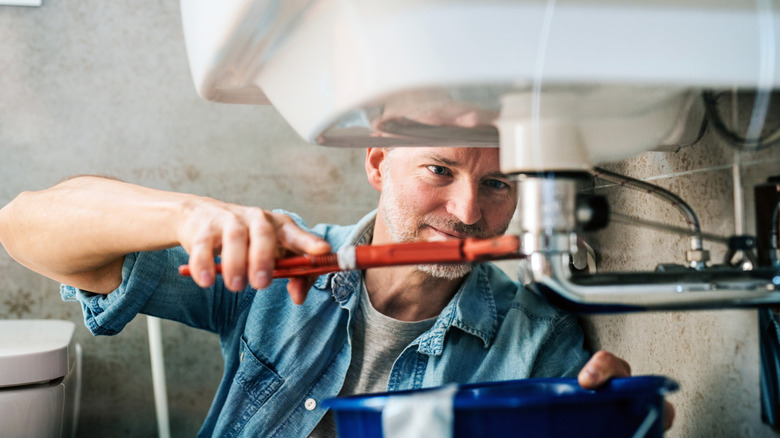The Plumbing Mistake That Can Cause More Damage Than You Think
There are plenty of plumbing projects that are doable for a DIYer or even an inexperienced homeowner, but no matter what plumbing project you are working on in your home, there is one common mistake to avoid: overtightening the fixtures. Professional plumbers can be expensive, and it is not always practical to hire someone, especially for small things, such as replacing a shower head or fixing a minor leak. However, even the most basic DIY home improvement projects that every homeowner should know how to do can spiral into larger problems if you tighten your parts incorrectly. The instinct to tighten something as much as possible is strong and might seem to make sense, but in reality, it can cause damage. This is especially true when people mistake a leaky pipe for a problem caused by a loose fixture. Not only will they not fix the problem, but they can also potentially add to the issue.
Tightening pipes too much can have numerous consequences. It can make the parts difficult to loosen or disassemble, warp or deform the fitting and rubber seal, or it can crack something, which can cause new leaks. So, although it may feel right to keep turning the wrench, you may be doing more harm than good. If you do want to tackle a DIY plumbing problem, then it is important to understand what can go wrong, how to correctly tighten a pipe, and what you can do if you accidentally overtighten a fixture in your home.
The consequences of overtightening plumbing fixtures
Whether you have a leak or are just installing a new part, you should be careful not to tighten anything too much. As you tighten a fitting beyond its intended point, you risk stripping the threads. Without proper threads, the whole system will not be able to properly connect, and the threads will not have the sealing effect that their design creates. Plus, stripped threads will make it more difficult to remove later. Overtightening also damages rubber seals by warping them. If the seal is forced out of its regular shape, it can allow water to leak out. Finally, overtightening puts excessive pressure on the plumbing system, which can cause a fitting to crack over time. The pressure can even result in burst pipes and indoor flooding that are far worse than a minor leak.
One common piece of advice is to stop as soon as you feel the fitting tighten. If that advice feels too vague, simply tighten by hand as much as you are able before finishing the connection with a half-turn from a wrench. Given the consequences of overtightening, you may want to err on the side of caution and potentially undertighten the fixture. This allows you to carefully tighten it more if it is leaking or seems too loose at any point.
Dealing with overtightened plumbing fixtures
If this is not your first DIY plumbing project, you may be worried about previous fittings you have connected. If you suspect you may have overtightened some fixtures in your home, you have a few options. While some effects are immediate, like stripped threads, others develop over time. Cracks caused by pressure often occur within a few weeks. This means you may have time to loosen the fixture to an appropriate tightness. If you catch a warped rubber seal early enough, you should be able to loosen it and prevent further issues as well. If you are not quick enough to find and correct overtightened spots before problems occur, you can quickly repair a leaking pipe by using tape, putty, and clamps. You may also want to call a plumber if you suspect there are overtightened fittings to avoid significant damage to your home.
Overall, while there are some plumbing projects you should not attempt unless you are a professional, many projects are DIY-friendly and doable for most homeowners. You definitely do not want to damage your home plumbing system as a whole while trying to improve it. It's important to remember that if you notice a minor leak, assess the problem carefully before assuming that tightening is the fix. It could actually be the cause of a leak, and tightening it more could just make it worse.


